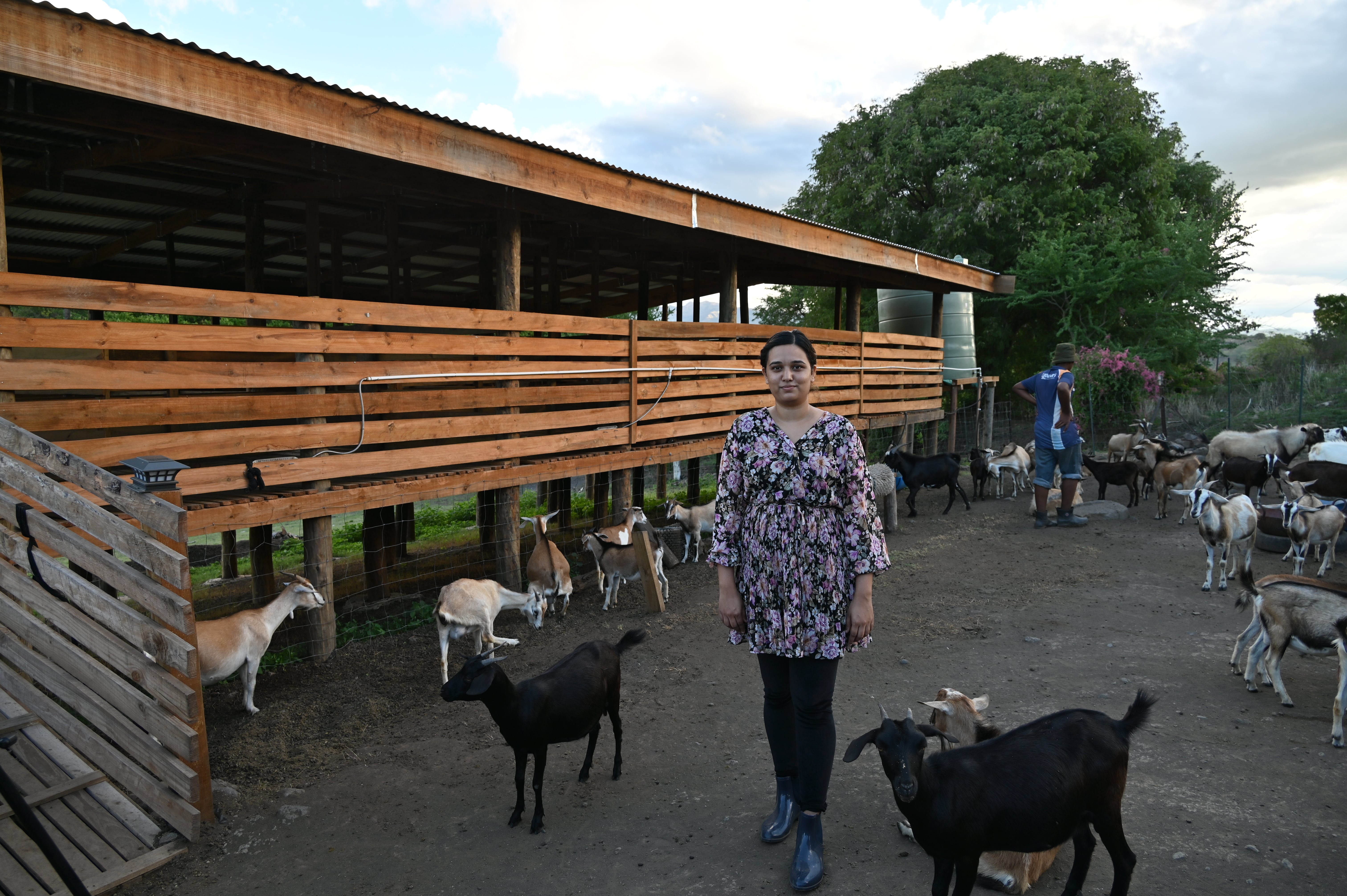FROM TOURISM TO GOAT FARMING IN BALATA, TAVUA

In the lush landscapes of Balata, Tavua, the story of Zabeen Khan unfolds—a story of resilience, passion, and remarkable transformation. Zabeen, a dedicated woman and a rookie farmer, embarked on her journey into goat farming three years ago.
Today, she stands proud, having successfully expanded her stock from 10 goats to an impressive 120.
The transition into goat farming wasn't easy, especially for a woman. At her age, she initially doubted if this was the right move for her. However, once she got into it, it felt magical.
Her love for animals and her natural ability to bond with them made the transition smoother. Zabeen's journey into farming began at the end of the COVID-19 pandemic when job opportunities in the tourism industry dwindled.
With a wealth of experience in tourism and a new life in Tavua, she faced limited work opportunities. After numerous discussions with her husband, they decided to start with their ten goats and see where it would lead.
As the number of goats grew from 10 to 20, then to 40 and 60, they realized the potential of their farm.
They applied for a grant and were fortunate to receive a semi-commercial goat rearing shed package, under the 2023/2024 Commercial Agriculture Development Program (CADP) of the Ministry of Agriculture and Waterways.
“This shed has brought numerous advantages, reducing the number of sick goats to zero and providing shelter during the rainy season, it is even hurricane-proof, ensuring the safety of our goats,” she said.
Zabeen's farm thrives on innovation and futuristic thinking. They implemented a unique brush system allowing the goats to scratch their bodies and keep them clean.
They also ensured a continuous water supply in the shed, giving the goats access to water 24/7 and a CCTV camera installed. Additionally, they introduced a supplementary feeding system, mixing mill mix and copra with water to provide the goats with essential nutrients not found in grass. Natural-based medications are also used to manage worms and other health issues.
Her story is a testament to the power of perseverance, innovation, and the willingness to embrace change and her advice to young farmers is simple yet profound.
"Take a day at a time and see what works out for you. There is no embarrassment in today’s farming age. It is good money and respectable, and you are your own boss."
Throughout their journey, Zabeen and her family have received invaluable support from the Animal Health and Production staff in Rakiraki who are always there when needed.
This sense of cooperation has been instrumental in their success.
Zabeen hopes that her story will eventually grab the attention of community groups or individual members who are having second thoughts about goat farming.
“If goat farming is something that you hope to venture into, please do so but if you feel you have a calling elsewhere like crops and other livestock, try it out as well. You must unleash the potential that you have and just keep moving ahead. There will be setbacks, but continue to forge on!”
-Ends-
